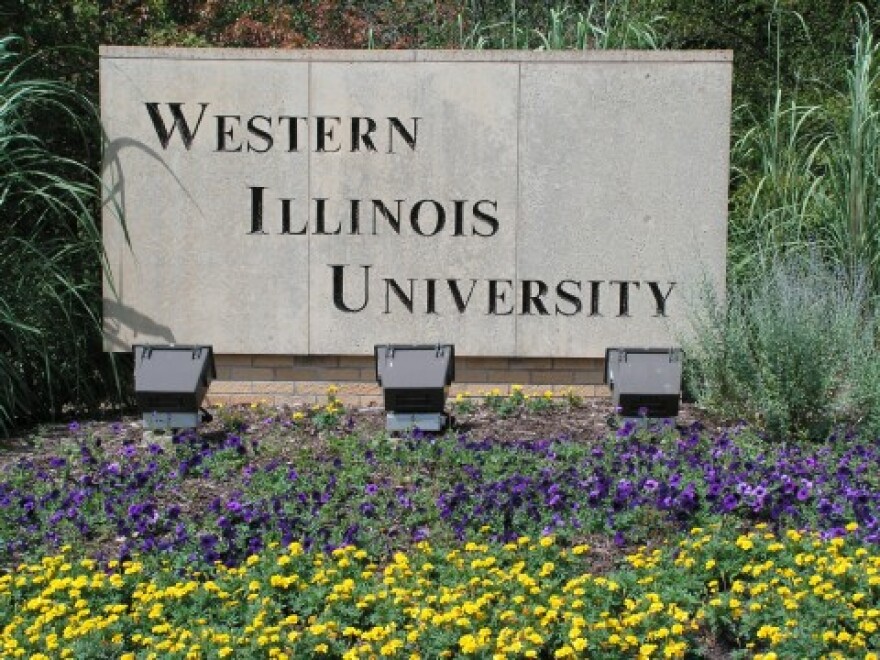State spending on public higher education in Illinois has dropped precipitously during the past two years as the state has operated without a budget. But the president of Western Illinois University said the school will not allow itself to be bogged down by the budget stalemate.
“We will not let this budget impasse define who we are. And I’m going to repeat that: We will not let this budget impasse define who we are,” said Dr. Jack Thomas during a news conference held to outline the university’s updated goals.
Those goals include:
- Increasing funding from sources other than the state while limiting cost increases to students
- Expanding the university’s public service and community engagement commitments
- Stabilizing enrollment at 10,000 students
- Creating new degree programs and certificates
- Expanding distance learning
- Increasing internship opportunities

After the news conference, Thomas told reporters WIU wants to make sure tuition remains affordable despite the state budget stalemate. “We’re not going to change our mission. We just have to do some things a little different in terms of fundraising.”
Joseph Rives, WIU Vice President for Quad Cities and Planning, said the entire WIU community needs to be involved in recruiting and retaining students.
“We are all ambassadors of Western Illinois University and we all have opportunities to tell the great story to help students make that choice to come to the right university,” Rives said.
He said it’s also important for Western to create partnerships with high schools and community colleges.
The Cost of the Budget Impasse
Western’s state appropriation was $51.4 million in Fiscal Year 2015, the last year the state had a budget. If funding remained steady the past two years, WIU would have received $102.8 million during that time frame. Instead it received $54.7 million from the state over the course of the past two years. So the university was shorted $48.1 million in operating funds for the past two years, plus the state still owes it around $11 million in Monetary Award Program (MAP) grant funding for the past school year.
MAP grants are awarded to Illinois students who are from low income families and who attend Illinois colleges and universities. Western covered the cost of those grants the past two school years. The state eventually repaid the school for the FY ’16 MAP grants but no such money has been forthcoming for FY ’17.
The decline in state financial support is being felt in other ways too. WIU said its number of fulltime employees has dropped about 14% since FY ‘15. Employees have endured layoffs and furloughs and some vacant positions have not been filled. Western also pared its staff levels through an early retirement program.
In addition, WIU has delayed some decisions regarding fall employment until it has a clearer sense of what financial support might be coming from the state. That’s left some 118 non-tenure track teachers in limbo.
President Thomas said the declines in enrollment and staffing levels are being felt beyond campus.
“We have about a half-a-billion dollar economic impact on this region (a 16-county region in western Illinois). So the community is very invested in this university and many of them are graduates of this university,” he said.









